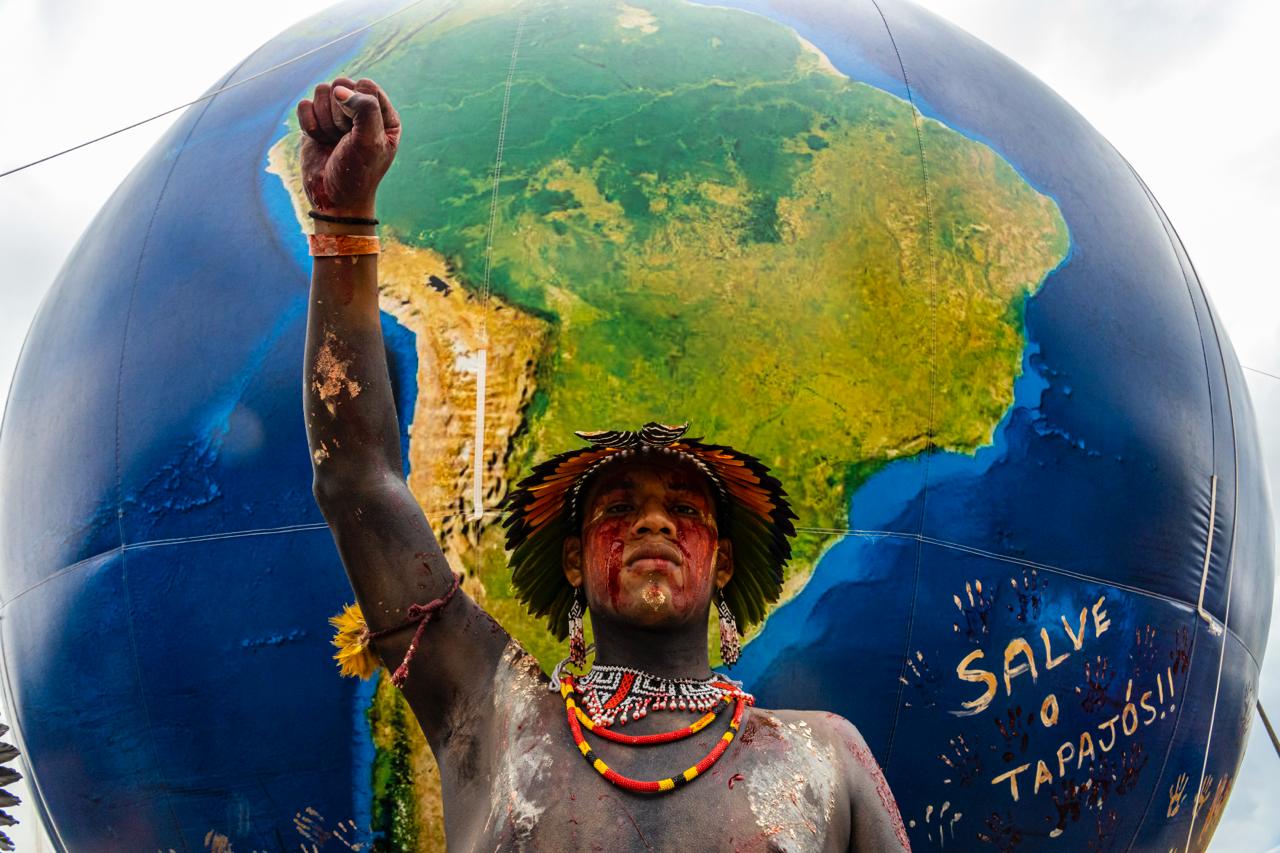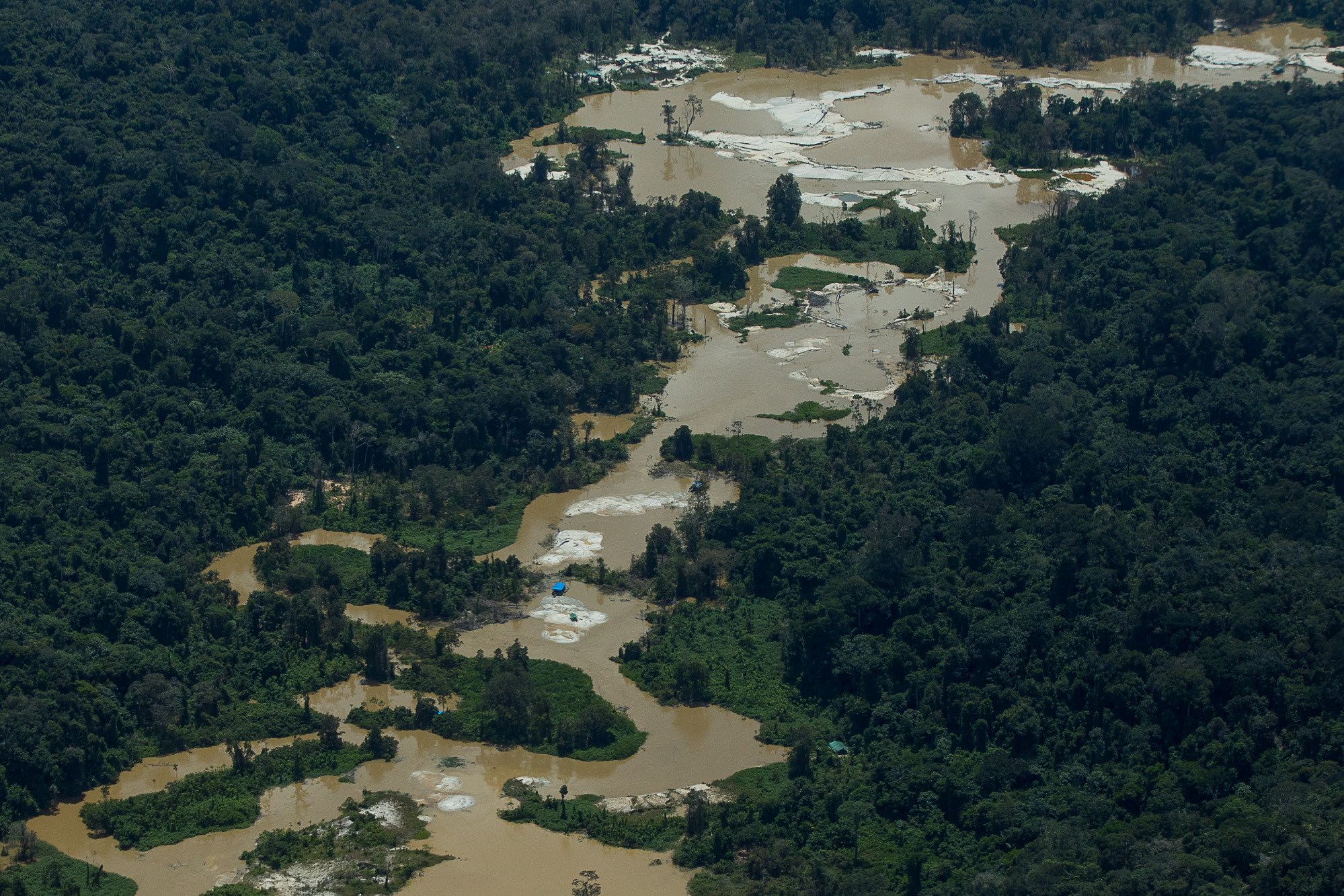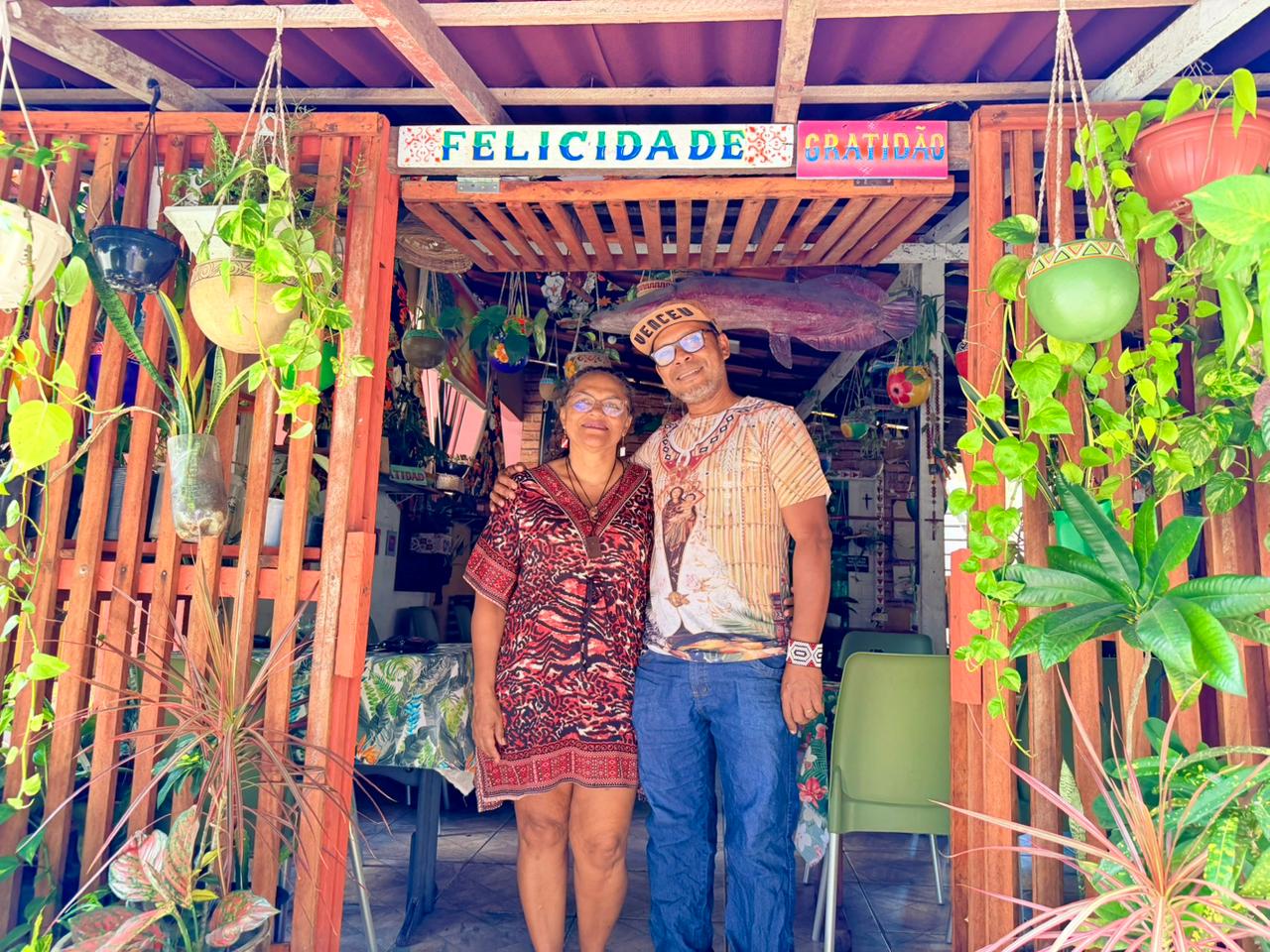
“Our situation is getting worse”: the Indigenous cry echoing from the tropical forests
An unprecedented international project by TBIJ, in partnership with Mídia NINJA, reveals global concerns over human rights violations, growing threats, and catastrophic climate change.
by Grace Murray
The host of COP30 – the UN Climate Conference taking place next month in Belém – have promised that this will be the first summit where indigenous people will play a leading role in the fight against climate change.
But new investigation shows that indigenous people from the world’s tropical forests are already facing battles on multiple fronts. They suffer human rights violations, worsening access to basic services and increasing threats to their ways of living.
In a unprecedented survey, The Bureau of Investigative Journalism (TBIJ) interviewed 100 indigenous people from countries that are home to the largest tropical forests. The goal was to understand how they live and the risks that they face as front-line climate defenders. The interviews – conducted with participants from Brazil, Peru, The Democratic Republic of Congo, Indonesia, Bolivia, Colombia and Venezuela – reveals a troubling picture: most respondents said that their situation has worsened significantly over the the past ten years.
Almost two-thirds said that their government are failing to uphold their rights – including majorities in Brazil, Bolivia, Peru and Venezuela. Many pointed to the weak enforcement of laws means to protect them.
In Brazil, the host country of COP30, some acknowledge the progress made by president Lula’s and the historic appointment of Sonia Guajajara as Minister of indigenous people – a gesture that, according to them, has brought hope and empowerment.
Globally, more than half reported that their lives are already affected by climate change, citing floods, droughts, fires, shifting seasons and extreme temperatures.
“The situation is serious – extremely serious”, said Fany Kuiru Castro, president of Coordination of Indigenous Organizations of Amazon Basin. She explained that illegal groups in the Amazon persecute, criminalize and assassinate leaders and defenders of indigenous territories – danger worsened by the climate crises.
According to Chris Chapman, indigenous rights adviser at amnesty international, the survey results “are fully consistent with global studies on peoples who depend on forests and whose rights are being violated”, he add, “it will not be possible to reverse this crisis without a healthier relationship with nature”.
100 Indigenous Voices
In partnership with El País, Mídia NINJA, Tempo and La Région, The Bureau of Investigative Journalism (TBIJ) developed a ten-question survey conducted with one hundred indigenous people through in-person interviews, Zoom or WhatsApp. The questions addressed topics such as threats, food security and the importance of the forest in their lives.
Most respondents said that their health and access to water have worsened over the past decade. More than two-thirds reported greater difficulty in obtain food.
Leo Morales, from the Pemón and Taurepang people in Venezuela, attributed this decline to deforestation:
“It´s getting worse because the forest are farther and farther away. The animals move away, the rivers dry up, there is no more fish.”
Those who mentioned deforestation – one of the main cause of the climate crisis – pointed to factors such as the expansion of cattle ranching and extractive industries, especially mining.
Nearly 60% said that threats have intensified in the last ten years, linked to mining, logging, cattle ranching and fossil fuel exploitation.
About one-fifth, all from the Amazon region, reported mercury contamination caused by illegal gold mining. The metal, which is highly toxic, has serious health risks – especially to pregnant women and babies.
Alessandra Korap Munduruku, from Brazil, stated:
“Mercury has been present for a long time, we already suffer from it. We know that breast milk contaminates children, and there are many cases of pregnancy loss and children who don’t develop properly.”
Indigenous women also reported sexual violence by invaders, teen pregnancie, gender-based violence within communities and the machism of some leaders.
More than 60% of respondents said that health conditions in their communities have worsened. They reported new diseases, changes in diet and lack of medical supplies. One participant from Venezuela said that patients have to bring their own material to the hospital.
Guardians of the Forest?
Although international treaties such as the Paris Agreement mention indigenous rights, they still do not officially recognize the role of these people in mitigating the climate crisis. Research shows that forest destruction is significantly lower in officially recognized indigenous territories.
For this reason, governments and institutions often refer to them as “guardians of the tropical forests”. But not everyone identifies with that label.
“I’m nobody’ s pet”, said Wilfredo Tsamash Cabrera, from Awajún people in Peru. “I defend the Amazon because it’s part of my life– and i’m part of it”.
When asked “What is the forest?”, the answer was varied: “temple”, “castle”, “mother”, “supermarket”, “pharmacy”, “tool shop”.
Richard Bakotola, from the Pygmy people in Kivu, Democratic Republic of Congo, described it as his “caddle”. Meanwhile, Juma Xipaia, a leader from the Xingu territory in Brazil who survived six assassination attempts, said:
“We cannot separate ourselves from the forest. We are one and the same. The impact on my people is the same as the impact on the forest – vice versa.”
Some say they feel strengthened by the recognition of their role in environmental protection and see themselves as part of the solution. Yet they empathize the urgent need for concrete support – with commitments and direct funding – to ensure their lives and territory.
Others, however, feel the disproportionate wight of this responsibility. As Nardy Velasco Vargas, from the Chiquitano people in Bolivia, summed up:
“It seems that we, indigenous people, are being left with the entire burden of saving the planet.”
Learn more about the international project 100 Indigenous Voices here
https://www.thebureauinvestigates.com/stories/2025-10-28/indigenous-voices




